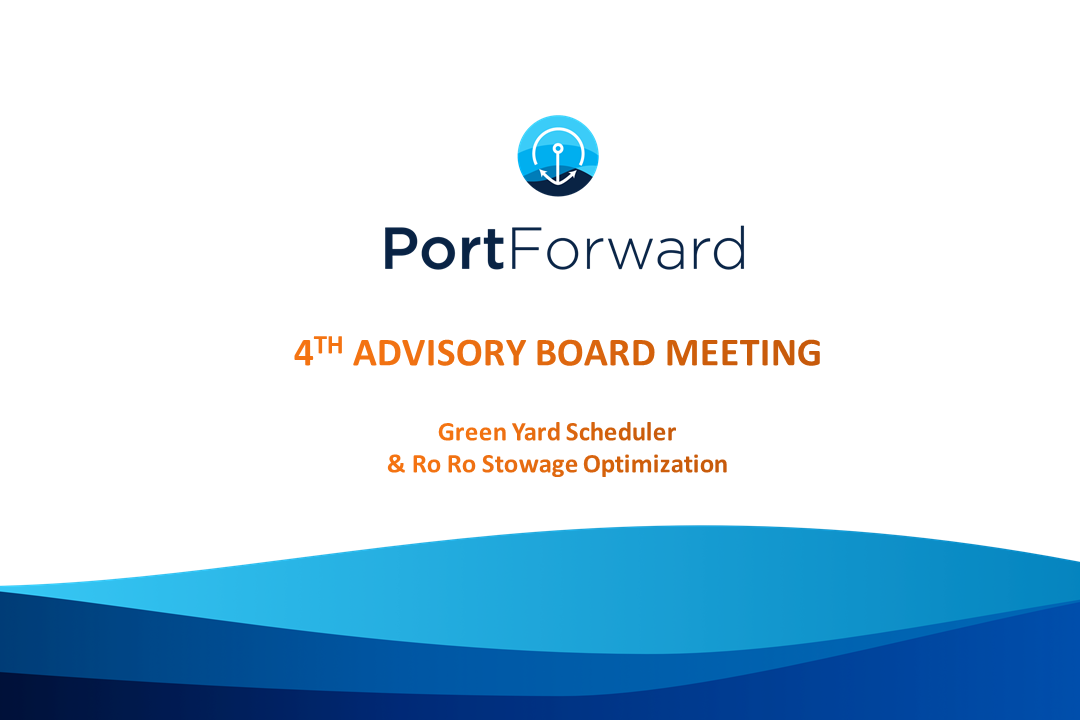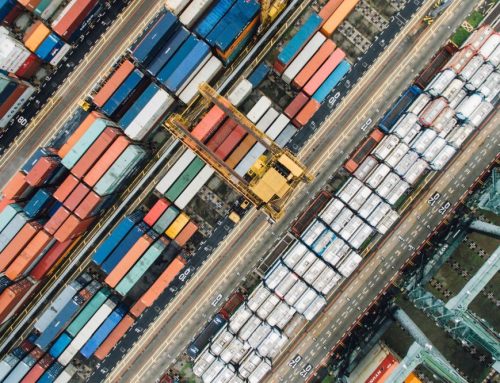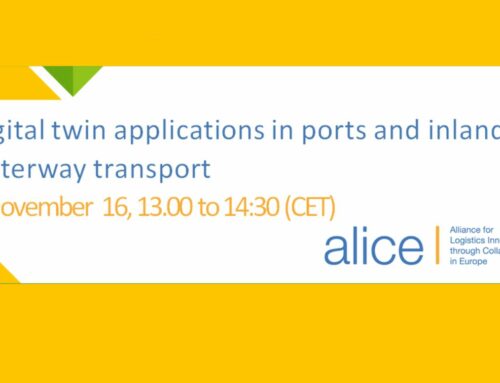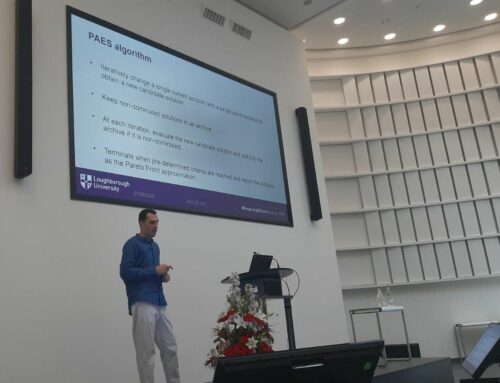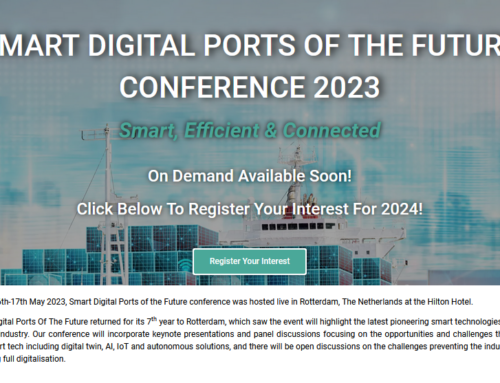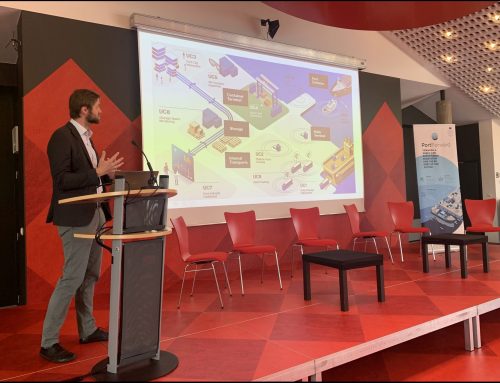As PortForward enters its last few months, the Advisory Board continues to meet and discuss the project’s advances. The 4th Advisory Board meeting took place virtually on Tuesday, February 8th with 12 attendees in total. Two Use Cases of the project were presented: the Green Yard Scheduler (GYS) Use Case and the RoRo Stowage Optimization Use Case.
Mr. Roberto Cinquegrani, Chairman of the Advisory Council, opened the meeting by presenting the agenda. He then introduced Mr. Afshin Mansouri, Professor at Brunel University London, and Mr. Cihan Butun, Research Fellow at Brunel University London, both of them presented and showcased the Green Yard Scheduler Use Case. The GYS is a decision support tool developed to optimise container terminal operations by prioritising container movements. The tool ensures that both the most effective and economical operations are followed, and that the operations’ environmental sustainability is taken into consideration. Mr Butun illustrated the GYS software and explained the optimization modules that is made up of. The modules utilize appropriate heuristic solution procedures to:
- emphasise the potential trade-offs between the KPIs of each module
- obtain a set of high-quality and diverse solutions
- achieve improved performance in calculation time and efficiency
After the presentation, a very fruitful discussion emerged during which the Advisory Board members agreed that the GYS tool has a wide range of applications and can be very effective at improving container terminal operations. In addition, it was noted that the use of this tool would be critical in ensuring the sustainability of ports’ operations.
Next, Mr. Cinquegrani introduced Mr. José Luis Buron, Innovation Project Manager at ACCIONA. Mr. Buron presented to the Board the “RoRo Stowage Optimization” tool. This tool provides decision support for the stowage planning of Ro-Ro (Roll-on/roll-off) ships. A mathematical approach to the stowage plan can lead to significant reductions in the loading times of vessels and thus to a reduction in costs and emissions by MAFIs. The tool’s objective is to provide a service for Ro-Ro shipping companies to optimise cargo stowage plans, maximise space usage in vessel decks, taking into consideration vessel stability and other constraints.
The members concluded that both tools presented during the meeting, provide valuable solutions to the respective problems. These two innovative tools could be of instrumental assistance for terminal operators and shipping companies alike because of their aim to improve the efficiency and optimization of logistics and freight transport.
The Advisory Board members provided helpful feedback on PortForward’s advances and the emerging discussions always came to very productive conclusions. The meeting ended on a positive note and the members were invited to assemble one last time for the final Advisory Board meeting, later in 2022.

